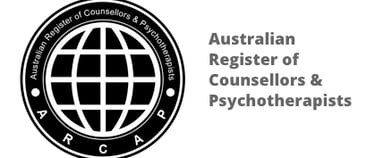Emotional Fatigue: What It Is and How to Recover
Life can be demanding. Between work, family, relationships, and daily responsibilities, it’s easy to feel like you’re constantly giving—and eventually running on empty. When that happens, you may be experiencing emotional fatigue.
SELF CAREBURNOUTMENTAL HEALTHTEENS


Feeling drained? Discover how emotional exhaustion builds and how counselling can help
Life can be demanding. Between work, family, relationships, and daily responsibilities, it’s easy to feel like you’re constantly giving—and eventually running on empty. When that happens, you may be experiencing emotional fatigue.
Emotional fatigue, sometimes called emotional exhaustion, goes beyond normal tiredness. It affects your mood, motivation, and ability to cope with everyday challenges. You might feel drained, irritable, or like you’re simply “going through the motions.”
How Emotional Fatigue Develops
Emotional fatigue often builds gradually:
Chronic stress: Constant pressure at work, school, or home takes a toll over time.
Supporting others: Caring for loved ones, especially in challenging situations, can leave you depleted.
Internal pressure: Setting very high standards for yourself or feeling the need to “do it all” can drain your emotional reserves.
When these pressures continue without relief, your body and mind can start sending signals: feeling numb, having difficulty concentrating, low motivation, or a sense of detachment from your life.
Signs You Might Be Experiencing Emotional Fatigue
Persistent feelings of tiredness, even after rest
Feeling overwhelmed or easily irritated
Reduced ability to cope with everyday tasks
Withdrawal from social activities or relationships
Difficulty concentrating or making decisions
How to Recover
Recovery from emotional fatigue doesn’t happen overnight, but small steps can make a significant difference:
Prioritise self-care: Regular sleep, balanced meals, and gentle physical activity restore energy.
Set boundaries: Learn to say no or delegate responsibilities when possible.
Connect with supportive people: Sharing how you feel can lighten your emotional load.
Engage in restorative activities: Mindfulness, nature walks, journaling, or creative outlets help recharge your emotional reserves.
Seek professional support: Therapy provides a safe space to explore stressors, develop coping strategies, and rebuild resilience.
Moving Forward
Emotional fatigue is a signal that your mind and body need care. By recognizing the signs and taking steps to restore your emotional energy, you can regain balance, clarity, and a greater sense of well-being. Therapy can guide you in creating sustainable strategies for coping, so you don’t just survive—you thrive.


